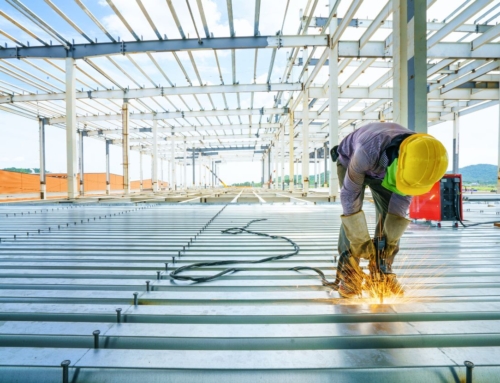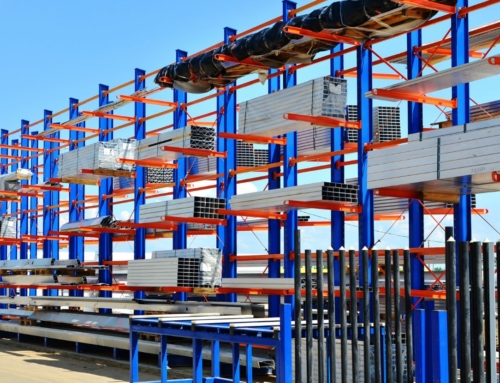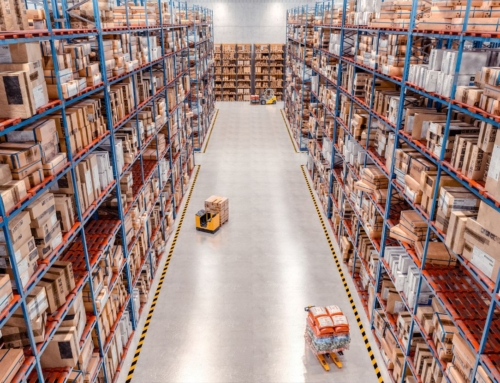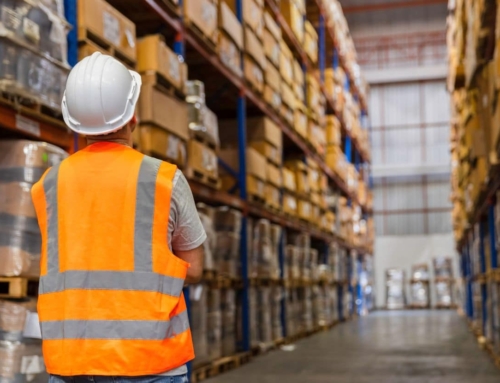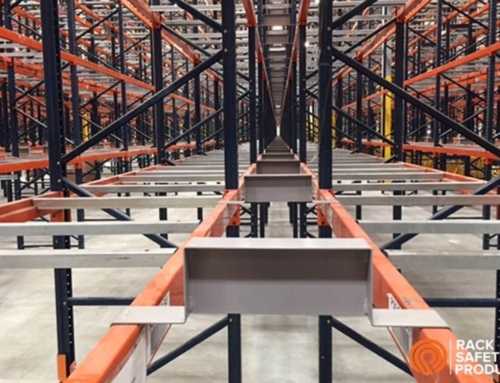A fire breaking out within your warehouse can be a devastating and dangerous event. It can destroy inventory, topple your building, and, most importantly, it poses a significant safety risk to workers, which can lead to severe injury or death. You need to know the danger of a warehouse fire in order to better protect your workforce, as well as your inventory and the facility itself.
Be aware of what the most common risk factors are with warehouse fires and what solutions can be put into place to either eliminate the threat entirely or to mitigate the damage that would occur.
What Are the Most Common Causes of Fire Outbreaks?
There are six causes that typically result in the outbreak of a fire within your facility. Those sources include:
- Arson
- Exposure Fires
- Heating Equipment
- Trash Fires
- Electrical Fires
- Flammable Materials
The Dangers of Arson
Arson is considered the most common type of fire hazard for warehouses and can be the most difficult to respond to. Because they are perpetrated by individuals and are carried out with the purpose of causing the most damage, they typically result in uncontrollable fires that have a high chance of completely losing your facility, as well as most of the inventory in it.
What Can Be Done To Prevent Arson?
While there is not much you can do in the way of prevention with arson, as you cannot control the individuals responsible, you can control how your facility responds to it. Mitigating factors can include a fire suppression system, whether that be fire extinguishers or a sprinkler system.
Make Sure Everyone Knows the Escape Plan
The most important way to decrease the danger of arson is to educate your works on the proper procedures and protocols in the event of a fire outbreak. Because fires as a result of arson is so destructive, you need a clear plan of escape that all workers are aware of. This should be something that should be practiced regularly to ensure a smooth exit when the need arises.
The Dangers of Exposure Fires
Exposure fires result from fires that originate outside of your facility but spread to your building—These fires can spread from other buildings, vehicles, or flammable materials. Exposure fire is different from arson in the sense that it was not started intentionally, and is instead the result of an accident. The fact that your building catches on fire is only due to the close proximity of another fire source you had no control over.
What Can Be Done To Prevent Exposure Fires?
Just like arson, there is not much you can do to prevent the outbreak of a fire that originates outside of your building. You can only react to this situation and make sure that you have the necessary solutions to slow down the fire long enough for employees to make their way outside safely.
The Dangers of Heating Equipment
Individual space heaters may be a common fixture in your warehouse because of the difficulty to adequately control your facility’s climate. But when workers install their own heating systems, they inadvertently increase the risk of a fire starting.
What Can Be Done To Prevent Heating Equipment Fires?
The safest way to eliminate the risk is to get rid of it entirely. Instruct workers that they are not allowed to bring in their own heating systems due to the high risk of a fire starting. Look into upgrading your facility’s heating system to make your workers comfortable while working and get rid of the need for them to bring in space heaters.
The Dangers of Trash Fires
Trash that is not properly stored in a safe and isolated area will run the risk of catching on fire due to external causes. The more trash build-up that there is, the more significant the potential flame will be. Excess trash can also serve as obstacles that can block exit ways in the event of a fire breaking out.
What Can Be Done To Prevent Trash Fires?
Have a designated area where employees can quickly and easily deposit their trash, whether that be directly into a trash compactor or a safe area where the risk of a fire is reduced. Encourage employees to dispose of their trash as soon as possible without letting it build up to the point of being a safety hazard.
The Dangers of Electrical Fires
Any time a cord transfers an electrical current, that wiring can run the risk of overloading and catching fire. Electrical fires can start from plugging in hand-held equipment, charging forklifts and other vehicles, or faulty wiring inside walls.
What Can Be Done To Prevent Electrical Fires?
Do not leave anything plugged in when it does not need to be; having that electrical current constantly running can act as a ticking time bomb before it finally blows. Make sure that all cables in your facility do not have exposed or worn-out wiring, as this can spark into a fire. Also, do not use extension cords for extended periods of time, as they are meant to be temporary and can easily cause a spark that will start a fire.
The Dangers of Flammable Materials
Whether you are dealing with the gas lines in your warehouse or with inventory that can be highly volatile, you need to be aware of the flammability of the materials around you. Ff exposed to a spark or a fire, these dangerous items can explode and cause significant damage to property, cause further fires, and pose a dire threat to the well-being of everyone inside your facility.
What Can Be Done To Mitigate the Threat of Flammable Materials?
Your response to flammable materials will all come down to the training of your staff and how they work with and handle this material. They need to know how to read the warning labels on inventory, proper storage procedures to keep these flammable items away from fire sources, and what to do if there is an imminent danger of an explosion.
Always Install Preventative Measures
The severity of fires in your warehouse can be drastically reduced with the implementation of standard safety procedures and protocols. Make sure that your sprinkler system is functional and has no leaks or blockages to hamper its effectiveness.
You will also need to install pallet rack spacers to ensure that the water from the sprinklers can reach the lower levels of your rack systems. You cannot always control how a fire breaks out, but you can control how your facility responds to an outbreak, and that reaction can either mean everyone going home safely or sustaining life-threatening injuries.



